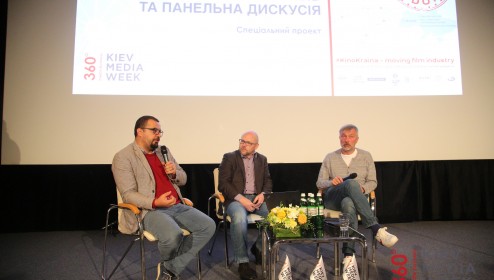
Law №3081-d on state support of the movie industry was adopted by Supreme Rada of Ukraine in the second reading yesterday, September 22, 2016.
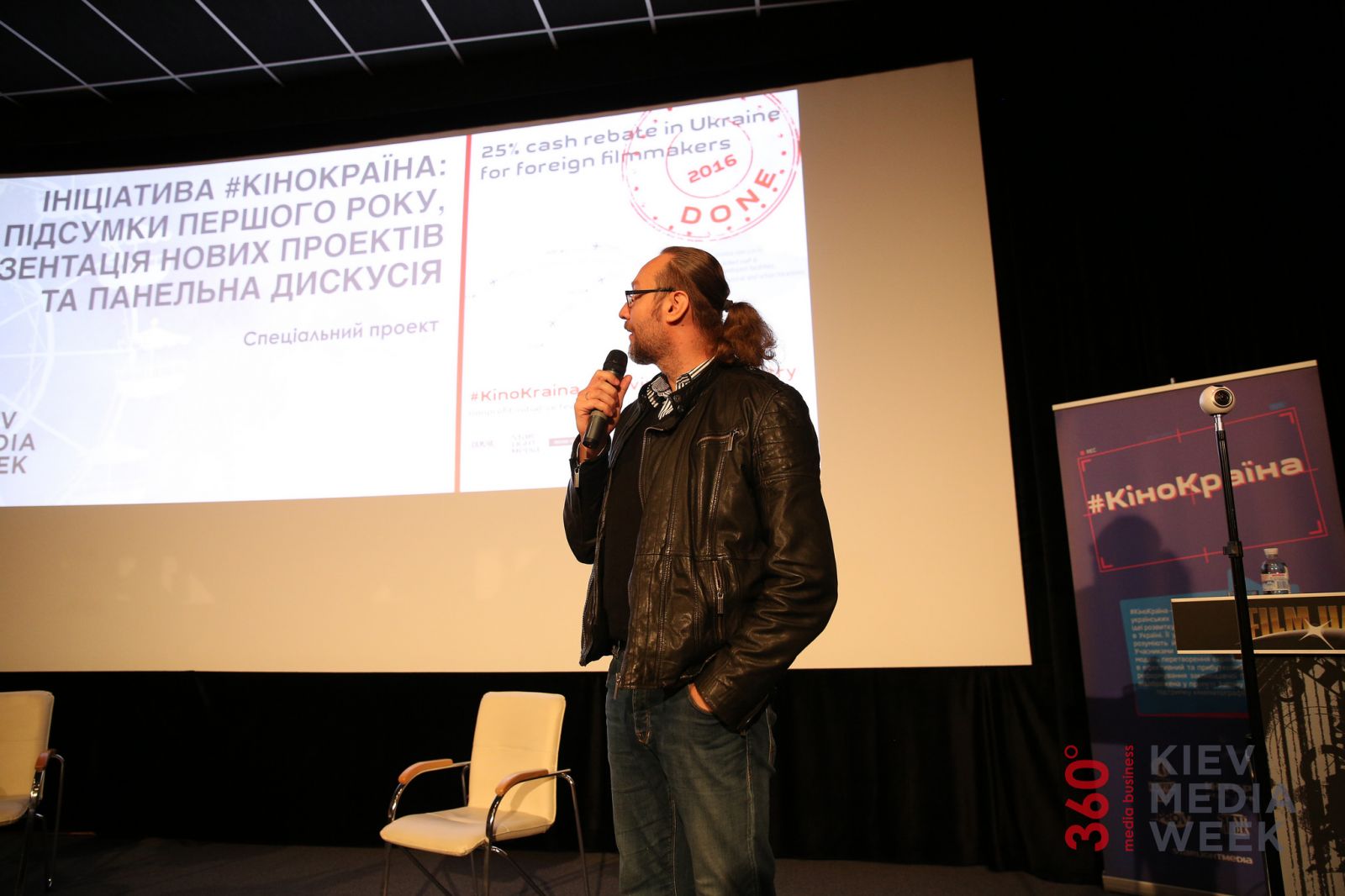
Friday, September 23, at closure of the 6 KIEV MEDIA WEEK International Media Forum within special #Cinecountry initiative project, a panel discussion took place where members of the initiative discussed current state of affairs in the industry, as well as opening perspectives in Ukrainian film and television sector due to new changes in legislation on state support of film industry.
The speakers of the panel discussion were:
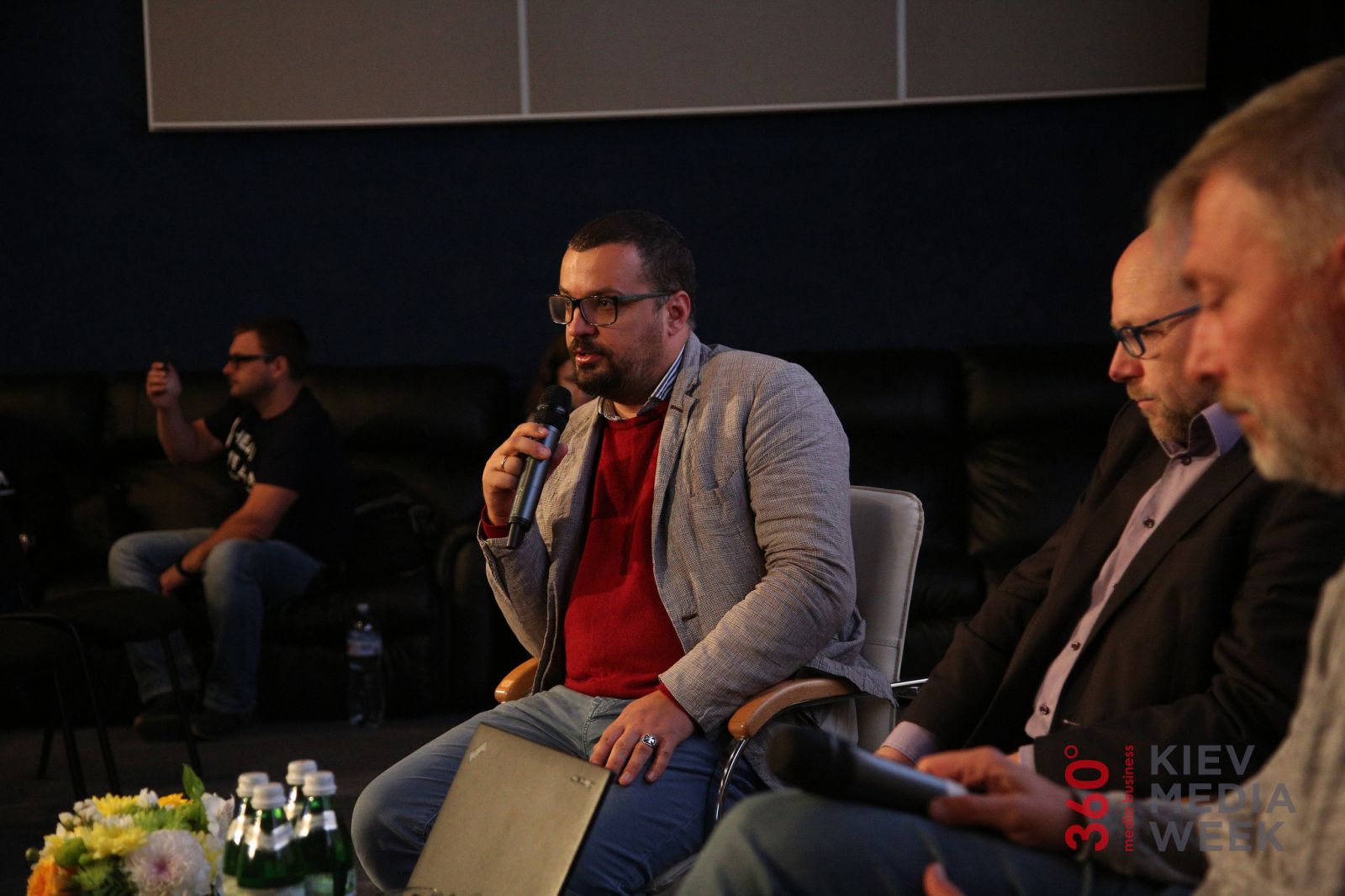
Pylyp Ilyenko, Head of the Ukrainian State Film Agency, Sergey Sozanovsky, a #Cinecountry representative, co-owner of FILM.UA Group, Rolandas Kvietkauskas, Head of the Lithuanian Film Centre. The discussion was moderated by Victoria Yarmoshchuk, Head of the Ukrainian Film Association, CEO of "Media Resource Management Company".
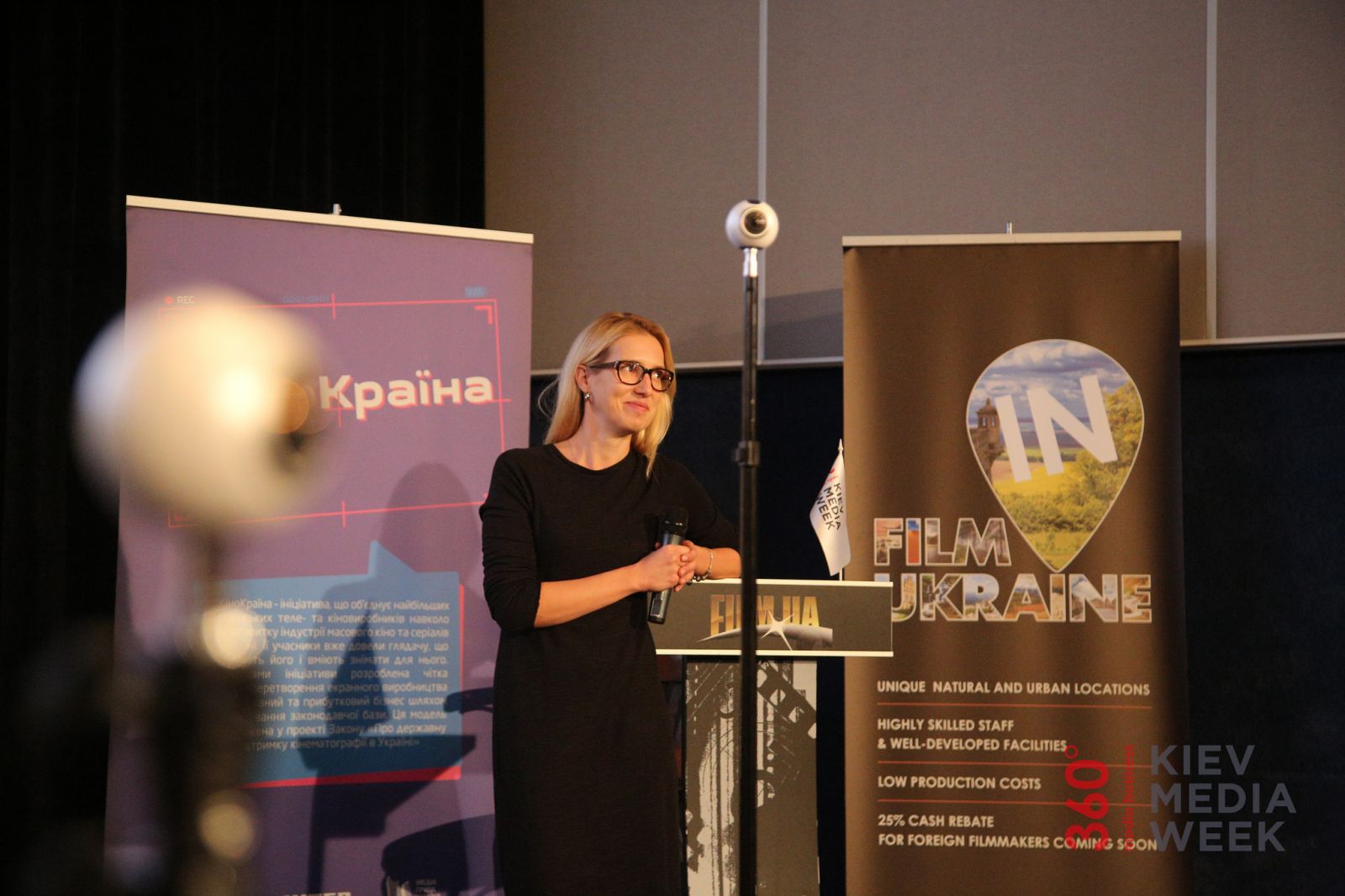
The audiovisual sector state support system has been changing drastically in Ukraine
September 22 may well be called historical for Ukrainian production industry, for the Ukrainian Parliament has finally adopted the new verison of law on state film industry support, capable of radically changing relations between state and film and TV industry workers, and not only Ukrainian ones, but also foreign.
To put it short, the new law anticipates that a full-length feature film producer can apply for state funding amounting up to 80% of the motion picture's budget (as opposed to up to 50% one could possibly count on until now).
A revolutionary novelty of the adopted law is a provision wherein state funting might also be applicable to TV-series producers: they now can count on up to 50% coverage of their operational expenses as a state grant.
Naturally, such preferences are not for everyone. Well, producers are themselves interested in openness and transparency of state funding schemes for the avoidance of precedents wherein funds may be transfered to no-name smalltimer companies which in the best scenario would blow up production budgets exponentially, or, in the worst case, simply disappear without ever producing anything. For this reason, production companies will go through annual competitive selection whereafter each of the companies will receive funding to produce no less than 2 motion pictures for cinemas (80% from the state, 20% from the producer), and / or TV series and telefilms (50% from the state, 50% from the producer) per year. Along with that, every production company will have to go through financial and productional expertise, while every project will have to be tested culture- and productionwise.
One more revolutionary innovation is the implementation of cashback system for producers (including foreigners) wherein part of production expenses is given back to producers who film on the territory of Ukraine. A new version of the law anticipates such return to be applicable to foreign and Ukrainian producers who produced their films at their own expense - up to 25% of the expenses spent for production of films and TV series within Ukraine, together with up to 10% of the expenses, paid from the territory of Ukraine and qualified as remuneration for foreign actors and other nonresident workers involved who do not pay withholding tax as residents of Ukraine.
Together with that, state funding will be applicable not only directly to production process, but also to develop pre-production projects and to their post-production, distribution (including worldwide) and festival promotion. Moreover, with regard to local popularization of the national film industry products, Ukrainian movie advertising was offered to be treated on equal terms with social advertising.
In between of the first and second readings in the profiled Supreme Rada committee, nearly 600 amendments have been reviewed, which confirms the vital importance of this document for the industry and for the country.
The Lithuanians will co-produce three joint projects with the Ukrainians
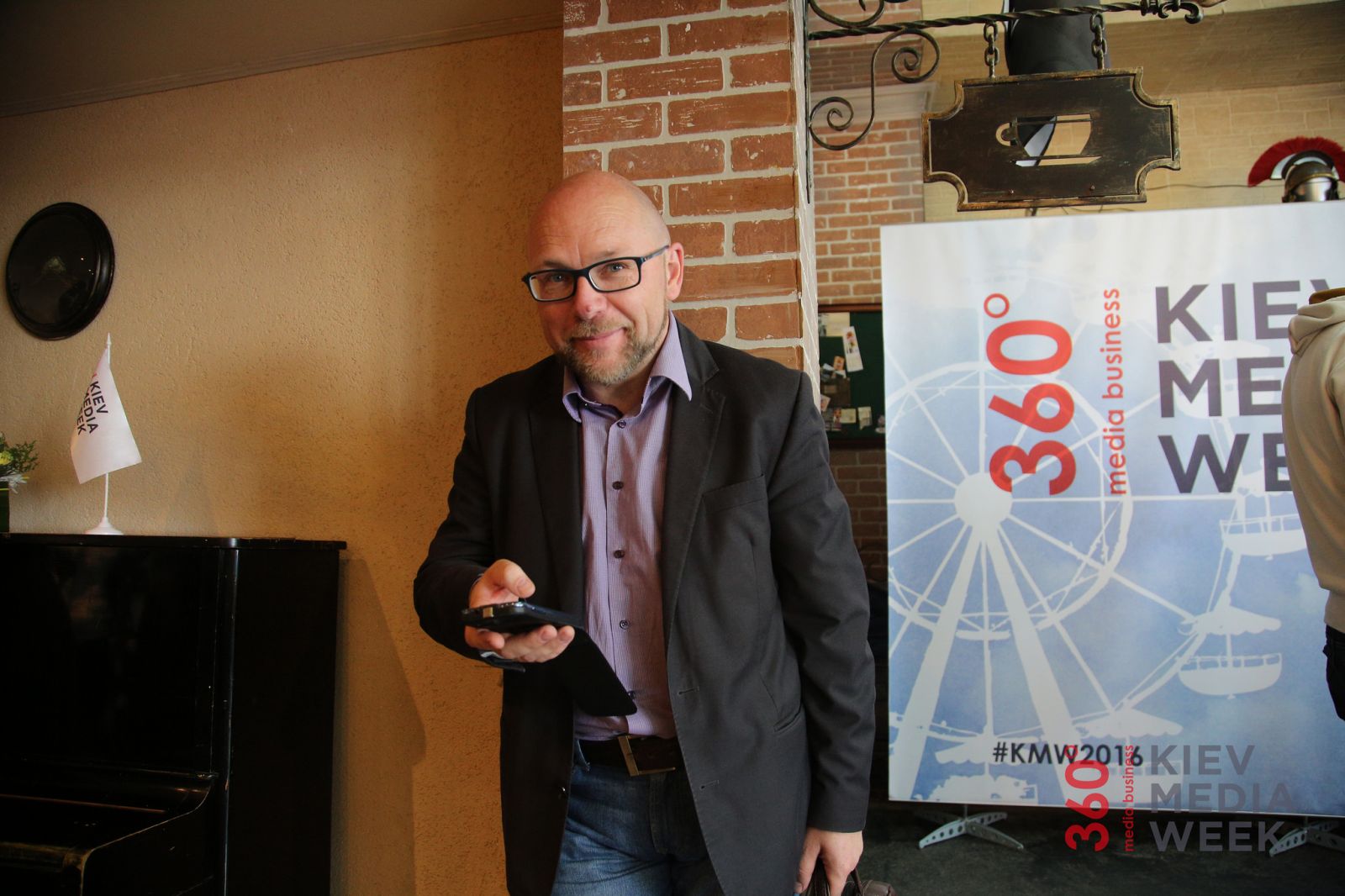
CEO of the Lithuanian Film Centre Rolandas Kvietkauskas shared his experience as well, telling that nowadays it has become much easier to debut in Lithuanian cinema, and right now Lithuanian cinematographers are working on three film projects jointly with their Ukrainian colleagues. The Film Centre started funding debuts as well, together with first short films as a separate category.
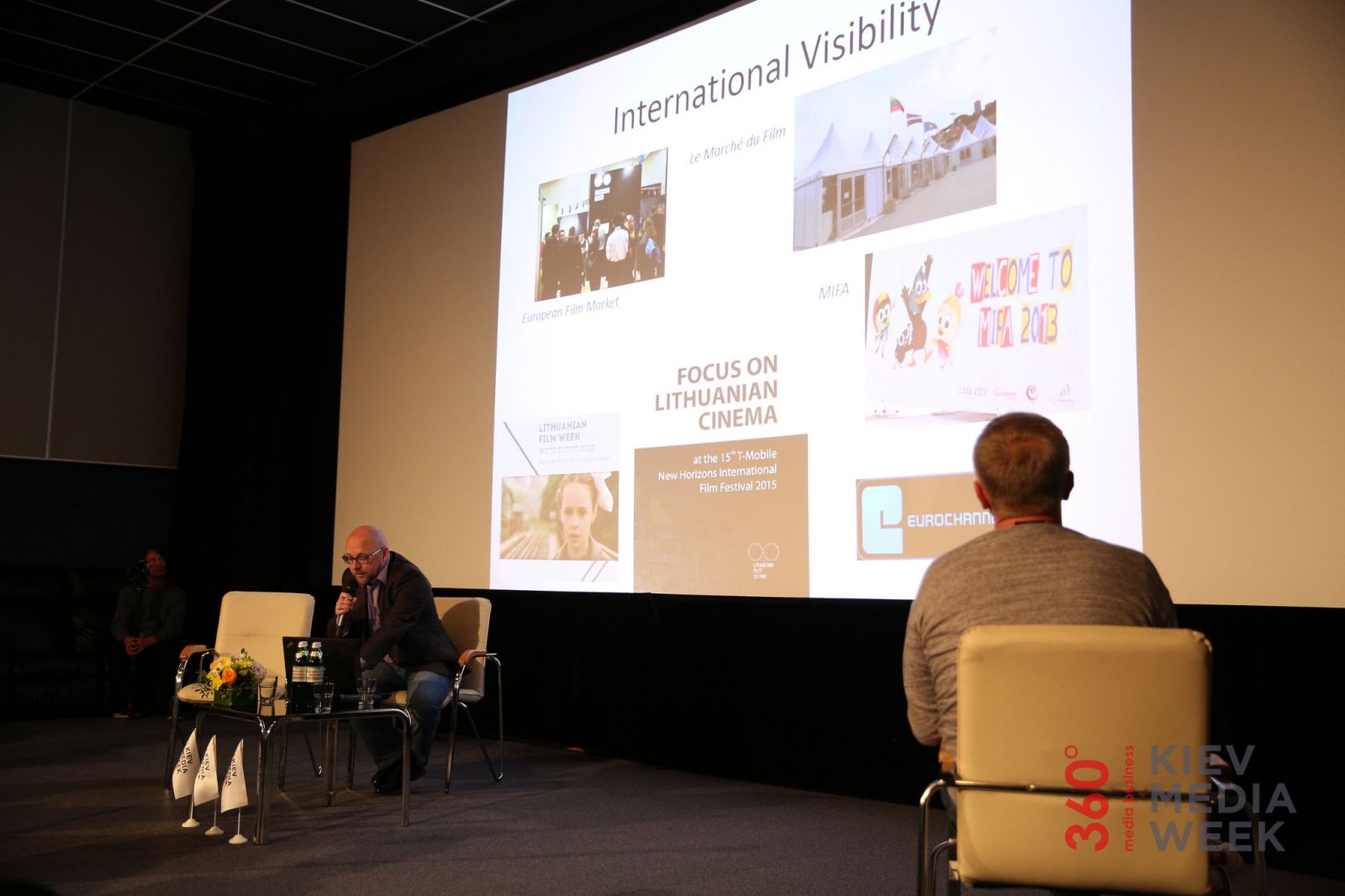
In full, Lithuania has allocated € 3,5 mln worth of film funding, which is €0,5 mln more than last year. Two thirds of the amount goes directly to funding cinema projects, in other words to giving out grants. Now, national film producers there may count on up to 75% of the project's budget, and producers of co-production films can apply for up to 60% of their budgets. It is worth mentioning that when choosing projects for funding, co-production projects are top priority.
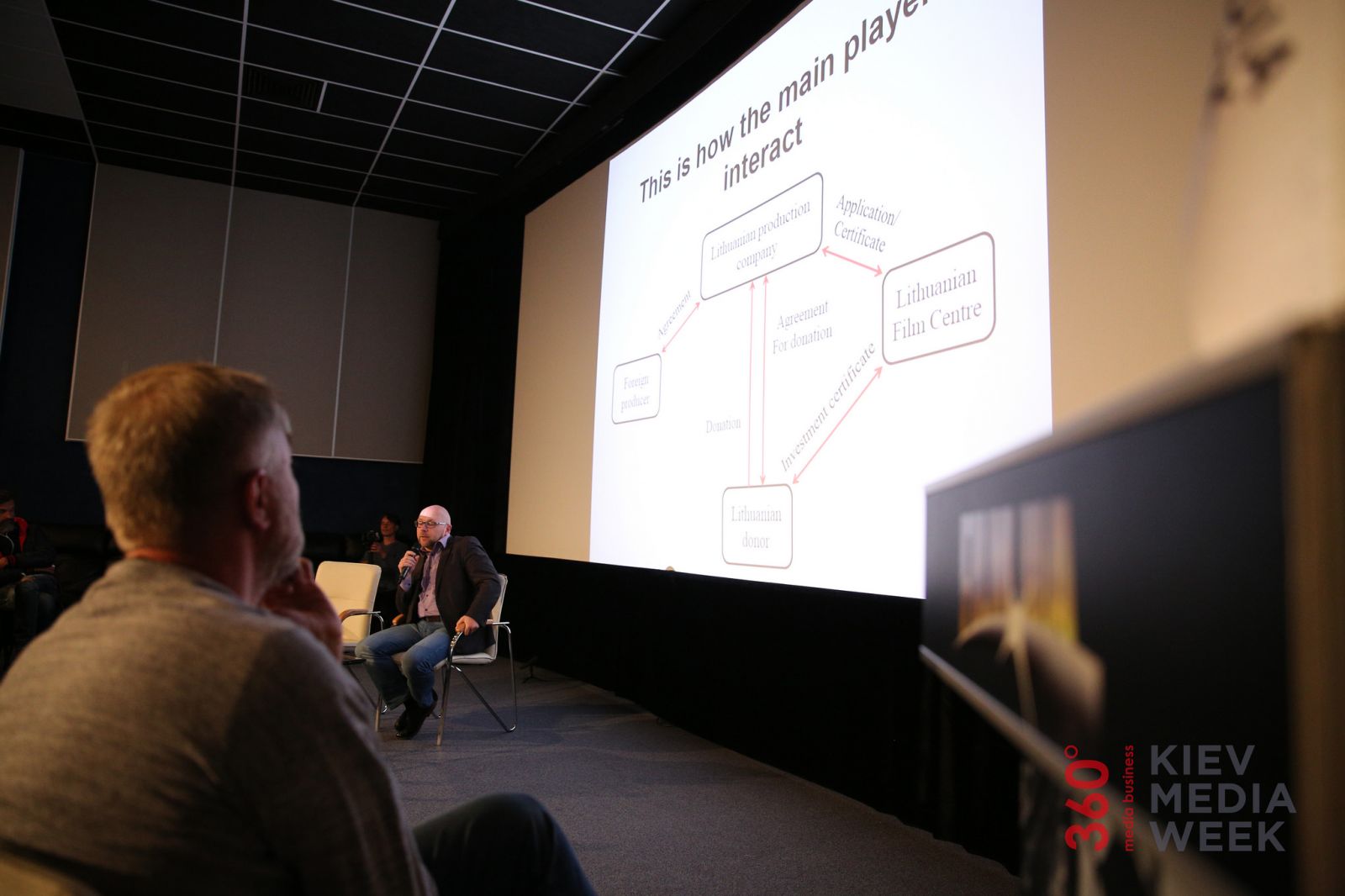
Rolandas also shared some successful moments of the Lithuanian cinematography for the last years. He said that in 2015, 35 motion pictures were filmed, 21 of which were released on big screens within the country. They totaled to 13% of the whole 2015 box office amounting to about €15 mln. Moreover, 2 Lithuanian films made it to top-10 of the local cinema rating. In total, 290 motion pictures made it to big screens all over Lithuania.
The participants of the #Cinecountry initiative introduced their new projects
As the closing part of the discussion, a screening of new Ukrainian projects took place, introduced by #Cinecountry initiative producers within KIEV MEDIA WEEK 2016 International Media Forum.
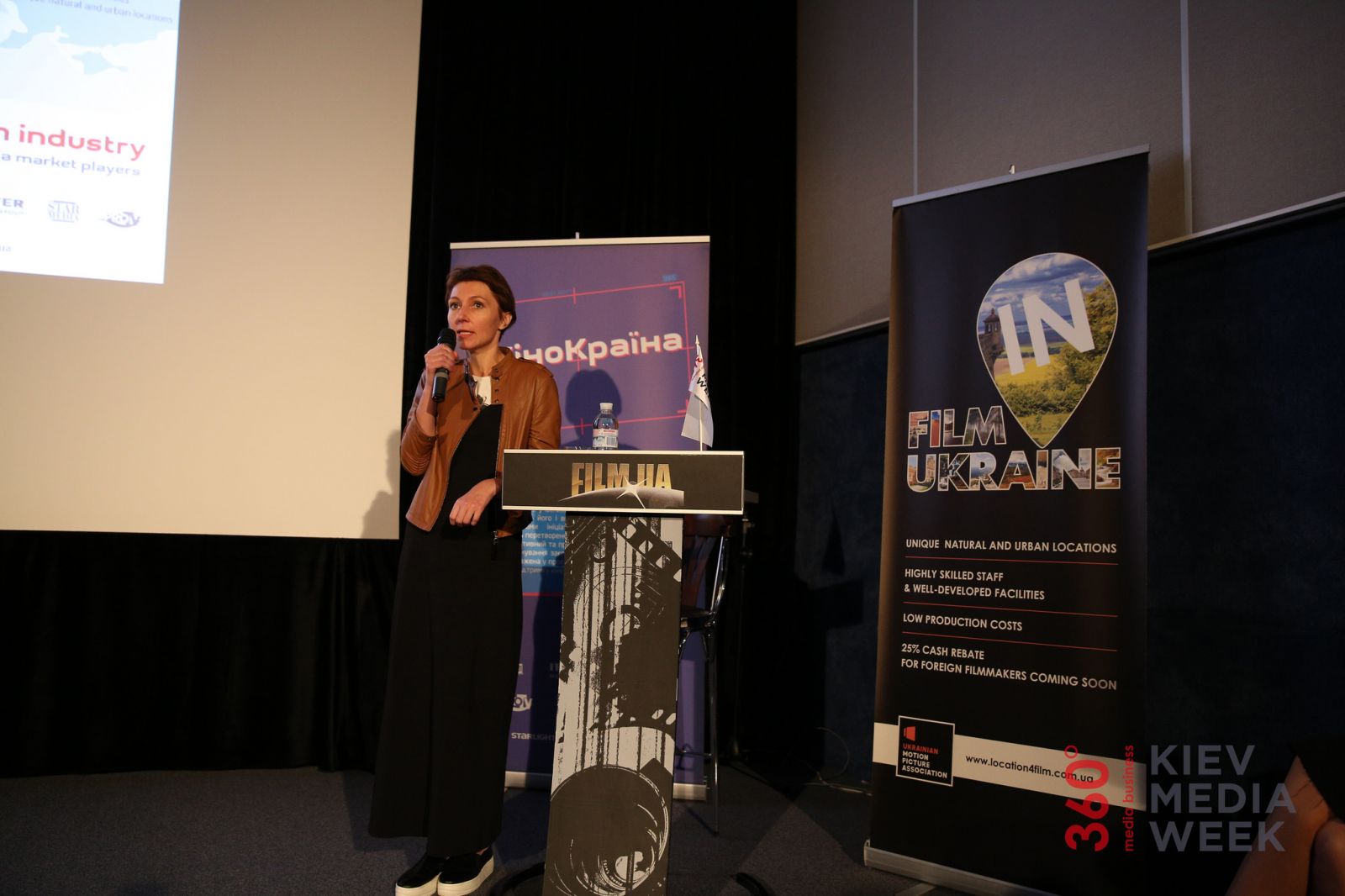
The event was opened by FILM.UA, where right now they are working hard on about 30 projects. The company introduced the following projects to the public: "The Sniffer" Season 3, that became "lighter, kinder and enhanced by funny elements ", and also the geography of its locations became larger; the project "Two lives" about a girl absconding from her father under witness protection program; a mystical thriller "Contact" by Mikhail Barkan with some first person filming; "Step Den", a comedy series after screening of which there was a huge standing ovation in the hall.
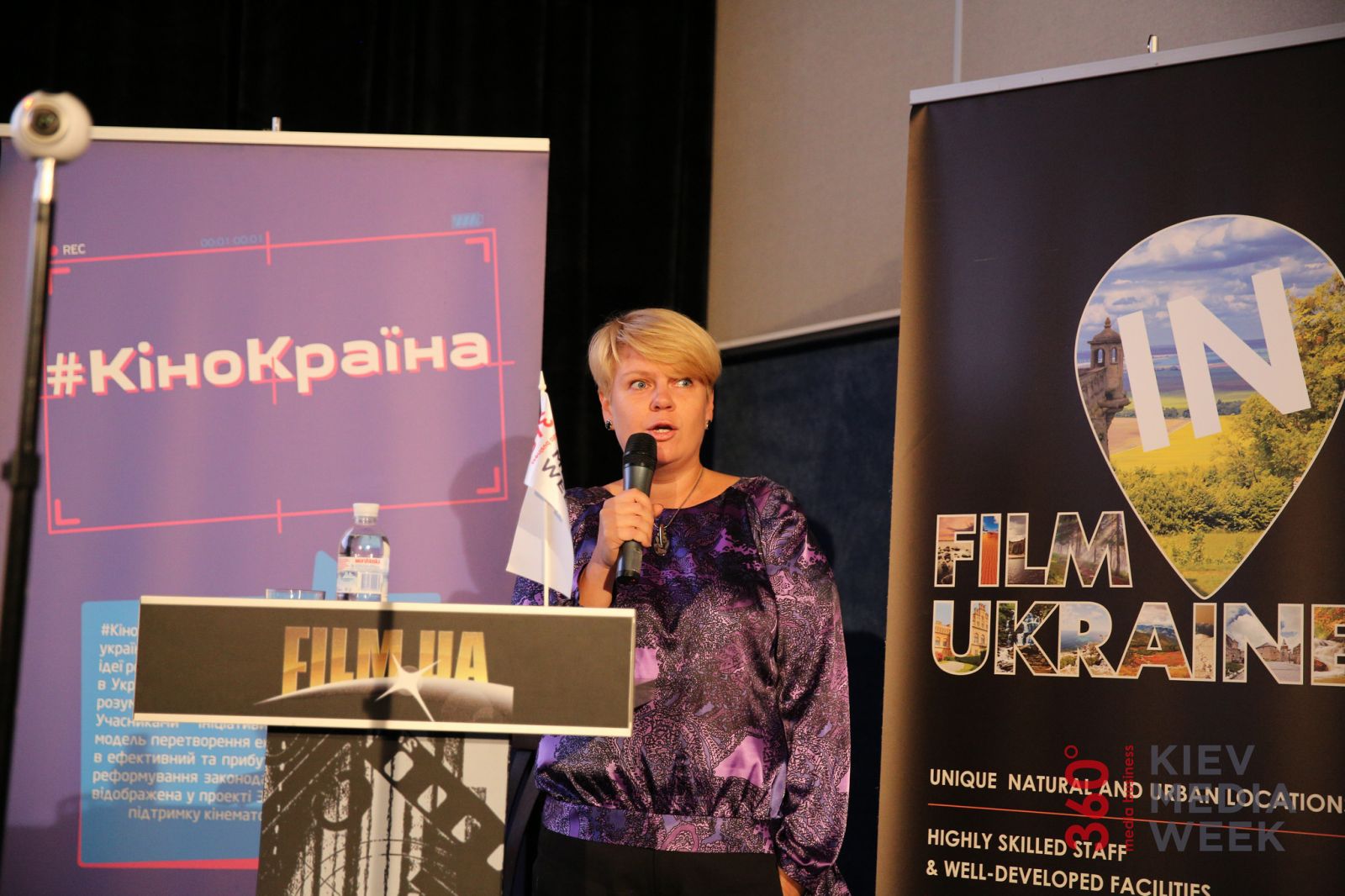
The representatives of Kvartal 95 Studio told the audience a fresh news about Netflix international video platform acuiring the "Public Servants" TV series, and afterwards introduced a feature film project "Public Servants" featuring a nameless modest President. This time the filming expanded all over Ukraine.
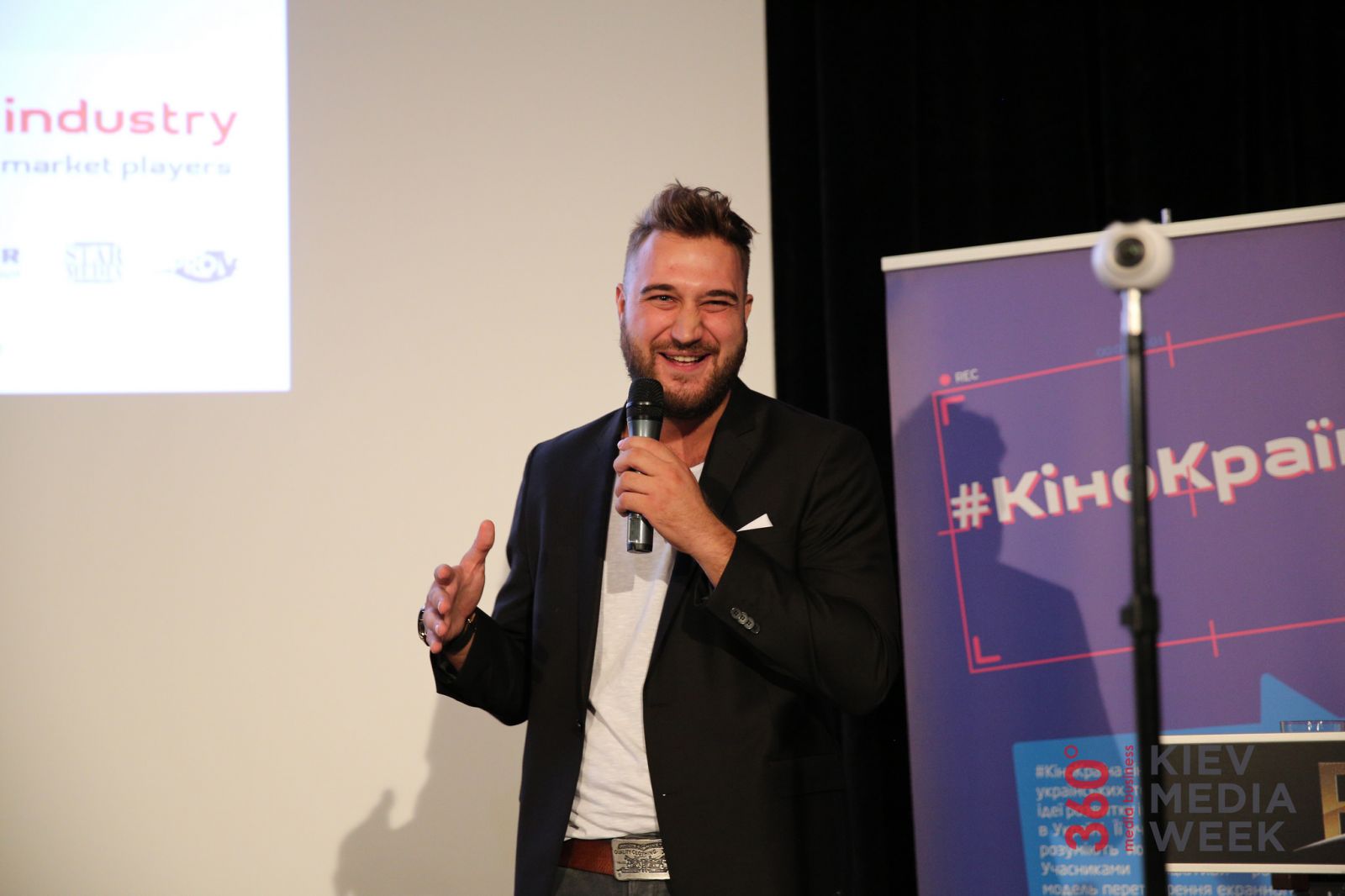
StarLightMedia Holding Company introduced a new series "Clique", letting know in advance about its nontrivial humour. The series is a kind of a symbiosis of "The Brigade" and Guy Ritchie's movies, from which they took some scenes. A serious, your typical gang kind of humour from a serious clique. SLM Group introduced a detective TV series "Bad Good Cop" in a classical format of ICTV channel, together with a short film "Grain", capable of a three-word description: expensive, intriguing, weird.
Inter Channel screened classical television dramas: "Threads of Fate",the adaptation of the South Korean series calledYuri Gudu, as well as a mystical drama "Line of Light", filmed on picturesque locations of Zhytomyr region.
Star Media cinema companyoffered screening of a piece from a melodrama called "Turkish Delight", a projrct called "Mysteries and Lies" in the genre of a today's trend, "scandinavian noir", as well as an animation film called "Bremen Bandits" and a melodrama called "Surgery. The territory of love".
"Ukraine Media Group" brought to screening a new season of "Hey Dude Show" (with a sequel called "Bar"). The project develops and acquires a sitcom format, where new characters and animation emerge.
FILM.UA Group
22, Mykoly Zakrevskoho str., Kyiv, 02232, Ukraine
tеl.: 0 800 308 028, +380 44 501-39-71 fax: +380 44 546-68-97 e-mail: info@film.ua
Developed by Argentum IT Lab
